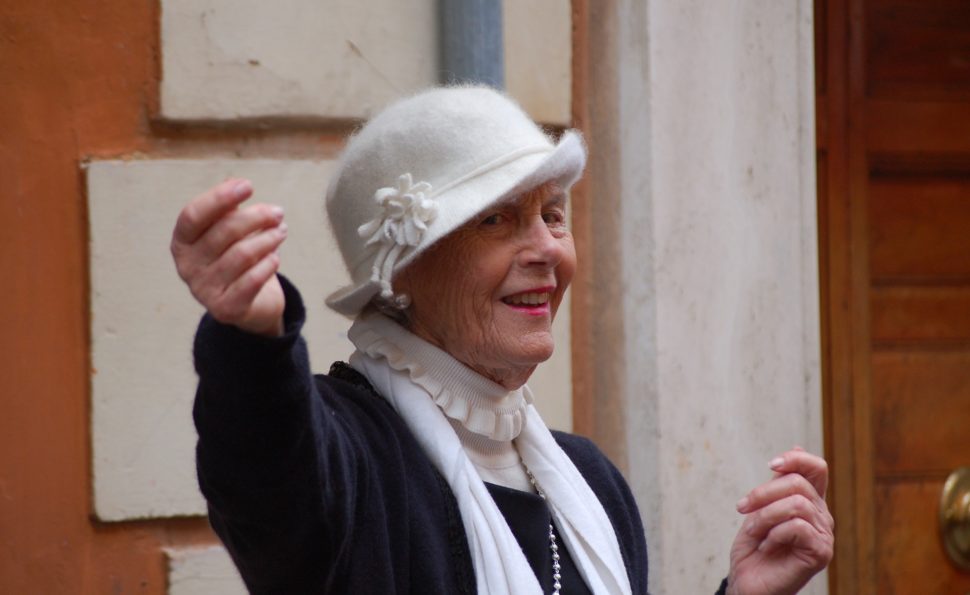How do we think about age? We’re used to taking certain perspectives for granted: images that have been handed down to us by the culture we grew up in. These images spring up in our mind as a kind of reflex; the words ‘age’ or ‘senior citizen’ immediately conjure up narratives that tend to center on subjects like health care, vulnerability, loneliness, and expiration. But like any other cultural narrative, these images can be questioned and examined too, which is how Gociety Solutions was born – by asking: do these narratives correspond to the world as we experience it today?
Someone who asked herself that same question is philosopher Hanne Laceulle, who is currently writing a dissertation on the subject at the University of Humanistics in Utrecht. She doesn’t just argue that it is time to revalue age (although it definitely is – no doubt about that) but also that it’s necessary to think deeply about the perspective on age we want to take withín that revaluation. In short: to broaden our discussion about age and to discuss other things than questions like ‘how can we figure out ways to enable older adults to share meals more often?’ – questions that, however well intended, bear witness to a strongly biased view of older adults as being dependent and unable to shape their own lives.
She distinguishes two different dominant perspectives on age within our culture: the ‘decline perspective,’ which interprets ageing as a process of decline and retrogression, and the ‘defy perspective,’ which equals good ageing with staying young for as long as possible. But if we think of ageing simply as a process of deterioration, she says, we completely leave out all the great possibilities that ageing provides us with! By focusing on things like ‘fitness’ or ‘productivity’ we ignore all those things that actually get better with age.
Because the more time we have spent in this life, the better we become at being ourselves – that is to say: the older we are, the more developed and the better we get at knowing which aspects of life are truly important to us. And conversely: which aspects of life are not worth our time. Our culture might fetishize youth, ignoring the many gems that only become available to us through the process of ageing – but that doesn’t mean that we have to.
We’re always thrilled to find allies in our battle against archaic cultural narratives concerning age, and furthermore: we could not agree more with Laceulle’s point of view. We agree with her that the way age is currently viewed can be damaging to older adults, depriving them of the possibility to perceive their lives as meaningful and to see clearly all the beautiful advantages that age provides them with.
It is exactly this stigmatizing view that we are fighting, and its alternative that we are trying to facilitate through our Gociety Solutions. Because, while it is important to think, talk and read about cultural narratives, we believe that the next step is even more important: to figure out real, practical ways of supporting and facilitating a new story. To invent and design methods, systems and devices that can be implemented on the most personal, daily level – because after all: that’s where life happens.




